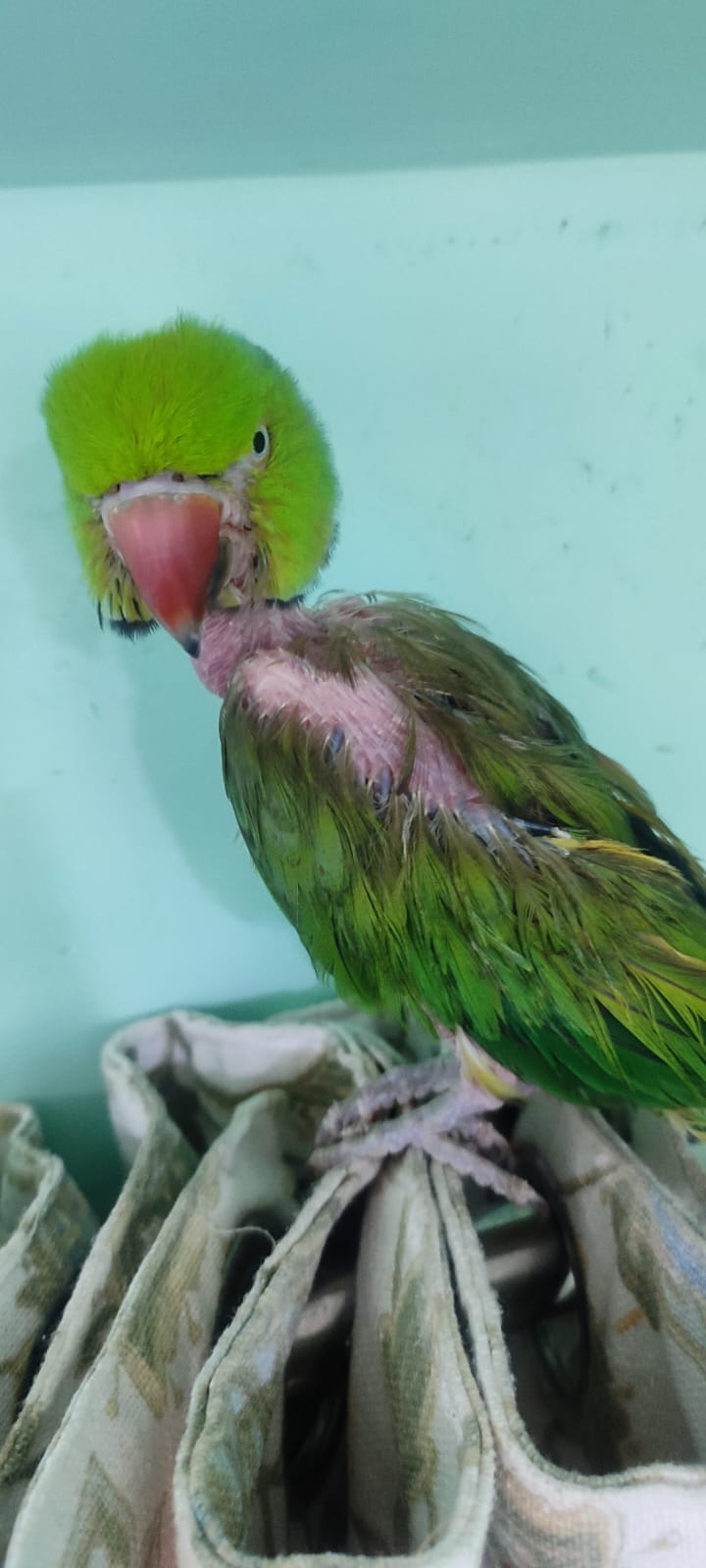
recently a parrot was presented to noida pet clinic with the history of severe itching and flakes coming out of skin. managed well at noida pet clinic and recovered well .
#parrotdoctor #parrotvet #parrottreatment #parrotdoctor near me #birddoctor #birdtreatment
Skin infections in parrots can be caused by various factors including bacteria, fungi, viruses, parasites, and even environmental irritants. These infections can manifest in different ways, such as redness, swelling, lesions, feather loss, or abnormal growths on the skin.
Common skin infections in parrots include:
Bacterial Infections: Bacterial infections can occur due to wounds, scratches, or bites from other birds. Bacteria such as Staphylococcus and Streptococcus can cause skin infections in parrots.
Fungal Infections: Fungal infections, particularly caused by Candida or Aspergillus species, can affect a parrot's skin. These infections may result from poor hygiene, inadequate living conditions, or exposure to contaminated environments.
Viral Infections: Avian poxvirus is a common viral infection in birds, including parrots, which can cause skin lesions, nodules, and scabs on the skin and beaks.
Parasitic Infections: Parasites like mites and lice can infest a parrot's skin, causing irritation, itching, and sometimes secondary bacterial infections. Scaly face mites and feather mites are particularly common in parrots.
Environmental Irritants: Exposure to certain environmental factors such as chemicals, toxins, or allergens can lead to skin irritation and infections in parrots.
Treatment for skin infections in parrots typically involves identifying the underlying cause and addressing it accordingly. This may involve topical or oral medications prescribed by a veterinarian, along with improving hygiene and environmental conditions to prevent further infections. Regular health check-ups and proper hygiene practices are essential to maintaining the overall health of pet parrots and preventing skin infections. If you suspect your parrot has a skin infection, it's important to consult with an avian veterinarian for proper diagnosis and treatment.




